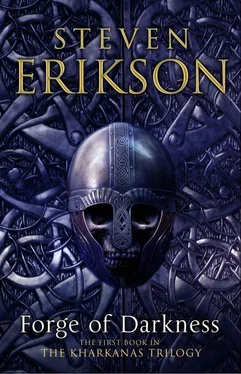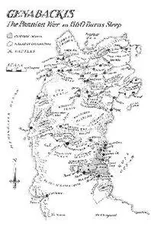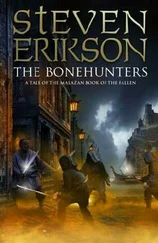Steven Erikson - Forge of Darkness
Здесь есть возможность читать онлайн «Steven Erikson - Forge of Darkness» весь текст электронной книги совершенно бесплатно (целиком полную версию без сокращений). В некоторых случаях можно слушать аудио, скачать через торрент в формате fb2 и присутствует краткое содержание. Жанр: Фэнтези, на английском языке. Описание произведения, (предисловие) а так же отзывы посетителей доступны на портале библиотеки ЛибКат.
- Название:Forge of Darkness
- Автор:
- Жанр:
- Год:неизвестен
- ISBN:нет данных
- Рейтинг книги:3 / 5. Голосов: 1
-
Избранное:Добавить в избранное
- Отзывы:
-
Ваша оценка:
- 60
- 1
- 2
- 3
- 4
- 5
Forge of Darkness: краткое содержание, описание и аннотация
Предлагаем к чтению аннотацию, описание, краткое содержание или предисловие (зависит от того, что написал сам автор книги «Forge of Darkness»). Если вы не нашли необходимую информацию о книге — напишите в комментариях, мы постараемся отыскать её.
Forge of Darkness — читать онлайн бесплатно полную книгу (весь текст) целиком
Ниже представлен текст книги, разбитый по страницам. Система сохранения места последней прочитанной страницы, позволяет с удобством читать онлайн бесплатно книгу «Forge of Darkness», без необходимости каждый раз заново искать на чём Вы остановились. Поставьте закладку, и сможете в любой момент перейти на страницу, на которой закончили чтение.
Интервал:
Закладка:
‘They are free,’ said Resh in a strained voice.
Caplo started. ‘My friend, of whom do you speak?’
‘Free in ways lost to the rest of us. You see their limits, their seeming poverty. You see them as fallen, forgotten, ignorant.’
‘Resh, I do not see them at all.’
‘What they are is free,’ insisted Resh, his gloved hands making fists on the saddle horn where they gripped the reins. ‘No tithes, no tributes to pay. Perhaps even coin itself is unknown to them, and every measure of wealth lies within reach of able hands, and within sight of loving eyes. Caplo, when the last forest is gone, so too will end the last free people of the world.’
Caplo considered this, and then shrugged. ‘We’ll not notice the loss.’
‘Yes, and this is why: they are the keepers of our conscience.’
‘It is no wonder then that I never see them.’
‘Yes,’ said Resh, his tone removing all the humour from Caplo’s words.
Irritated, made uneasy by this wood, Caplo scowled. ‘It avails us nothing to elevate the impoverished.’
‘I do not speak of those who have fled our way of living,’ replied Resh, ‘although one might argue that by choice or by accident they walk towards truth, while we plunge ever forward into a world of self-delusion. No matter. Those I am speaking of are those who were never tamed. They live still in this forest — perhaps only a hundred or so left. One cannot imagine their numbers any greater than that. We take their home, tree by tree, shadow by shadow. To know too much is to lose the wonder of mystery. In answering every question we forget the value of not knowing.’
‘There is no value in not knowing. Roll that thick hide of yours, Resh, and shake free of this nonsense. The value of not knowing? What value?’
‘You have no answer and so you conclude that none exists. And there in your reaction, O pallid wretch, lies the lesson.’
‘Riddles now? You know how much I dislike riddles. Out with it, then. Tell me what I lack. What is gained by not knowing?’
‘Humility, you fool.’
Behind them T’riss spoke up, her voice carrying with unnatural clarity. ‘In ritual you abased yourselves. I saw it in the courtyard, many times. But the gesture was rote — even in your newfound fear, the meaning of that abasement was lost.’
‘Please,’ growled Resh, ‘explain yourself, Azathanai.’
‘I will. You carve an altar from stone. You paint the image of waves upon the wall and so fashion a symbol of that which you would worship. You give it a thousand names, and imagine a thousand faces. Or a single name, a single face. Then you kneel, or bow, or lie flat upon the ground, making yourselves abject in servitude, and you may call the gesture humble before your god, and see in your posture righteous humility.’
‘This is all accurate enough,’ said Resh.
‘Just so,’ she agreed. ‘And by this means you lose the meaning of the ritual, until the ritual is itself the meaning. These are not gestures of subservience. Not expressions of the surrendering of your will to a greater power. This is not the relationship your god seeks, yet it is the one upon which you insist. The river god is not the source of your worship; or rather, it shouldn’t be. The river god meets your eye and yearns for your comprehension — not of itself as a greater power, but comprehension of the meaning of its existence.’
‘And that meaning is?’ Resh demanded.
‘Recall the gesture of abasement, warlock. You make it in recognition of your own humility. A god’s powers are immeasurable and before them you are nothing. Therefore you would worship your god and surrender your life into its hands. But it doesn’t want your life, and knows not what to do with your longing, helpless soul. In ritual and symbol you have lost yourselves. Could the god make you understand, it would make you understand this simple truth: the only thing worthy of worship is humility itself.’
Caplo snorted and then made to speak, to heap derision upon her assertion — but he did not even need Resh’s gesture of admonishment to bite his tongue. It was true that he had no imagination, but even he could see the pattern of predictable behaviour, in this confusing of ritual and meaning, symbol and truth.
‘Then,’ said Resh in a rasp, ‘what does our god want of us?’
‘Dear child,’ said T’riss, ‘he wants you to be free.’
Caplo was not one to welcome revelation. He felt knocked askew, and what galled him the most was that he understood, with absolute clarity, the Azathanai’s argument. Earlier, she had announced to them that they had killed their ancient river god. In binding water to mundane uses, in taking away its freedom, they had slain the very entity they sought to worship. It was only logical, then, that what the god wished for was freedom, and in that freedom, a life reborn.
He did not know how she had resurrected that river god, but there was no dissembling when she then said that change was coming to them all.
They rode on in febrile silence following her words, and when Caplo glanced across at Warlock Resh, he saw that his friend was silently weeping, and the glitter of the tears, so raw on his cheeks, was like a bitter gift in the gloom.
In tears, water runs free. One of the oldest poems in the scriptures, penned by an unknown hand. Generations had argued over the meaning, embracing both the prosaic and the profane; but in a handful of words from T’riss, that meaning was suddenly clear, and Caplo could almost hear the regret, echoing in the tormented scratching of quill upon parchment, from that unknown, heartbroken poet.
A truth buried in mysterious words. This was how imagination could be both gift and curse. For himself, he would rather have remained ignorant, but it was too late for that.
After a ride through the night, wrapped in silence and anguish, they reached the edge of the forest, and the city of Kharkanas rose before them, knuckled against the banks of the Dorssan Ryl, like a massive fist of black stone.
The old temple at the heart of the Citadel always made High Priestess Emral Lanear think of a closed eye within a deep socket. The bones spread out from this shuttered centre, in angular additions, the black stone heaped in a half-dozen architectural styles to fashion something like a crushed skull, flattened by its own weight, its innumerable burdens. There was nothing of beauty in the Citadel and for all the life that rushed through it, in corridors and chambers, on saddled steps and in musty cellars, it conjured in her mind an image of bugs trapped in that skull, desperate for a way out.
The stones were insensate, and so the eye remained shut. One could look upon a lifeless face for as long as one liked; if it was truly lifeless, it would never change. No flickering of the lids; no drawing of breath, nothing at all to shock the observer with the undoing of truth, or the unmaking of time.
She was walking beside Sister Syntara, in formal cadence, as they approached the Grand Hall that had once been the temple’s nave. Behind them trailed a dozen priestesses, their fluttering excitement stripped away as, with each step, the way ahead grew darker, defying the candles, devouring the light from the flanking torches on the walls.
None could draw close to the presence of Mother Dark without slowing their steps, and even though preternatural vision was now common among the priestesses and those closest to their chosen goddess, there remained an ineffable pressure in the air, and a chill that reached deep into the bones. Hands could not help but tremble. Breaths grew shallow, the air biting the lungs.
Fifteen solemn strides from the entrance, Emral felt something strike her forehead, and then trickle down to her brow. An instant later she gasped as the wet streak froze against her face. Another drop landed upon her hand where it held the Scabbard, and she looked down to see the bead of water form instantly into ice, numbing the skin beneath.
Читать дальшеИнтервал:
Закладка:
Похожие книги на «Forge of Darkness»
Представляем Вашему вниманию похожие книги на «Forge of Darkness» списком для выбора. Мы отобрали схожую по названию и смыслу литературу в надежде предоставить читателям больше вариантов отыскать новые, интересные, ещё непрочитанные произведения.
Обсуждение, отзывы о книге «Forge of Darkness» и просто собственные мнения читателей. Оставьте ваши комментарии, напишите, что Вы думаете о произведении, его смысле или главных героях. Укажите что конкретно понравилось, а что нет, и почему Вы так считаете.












